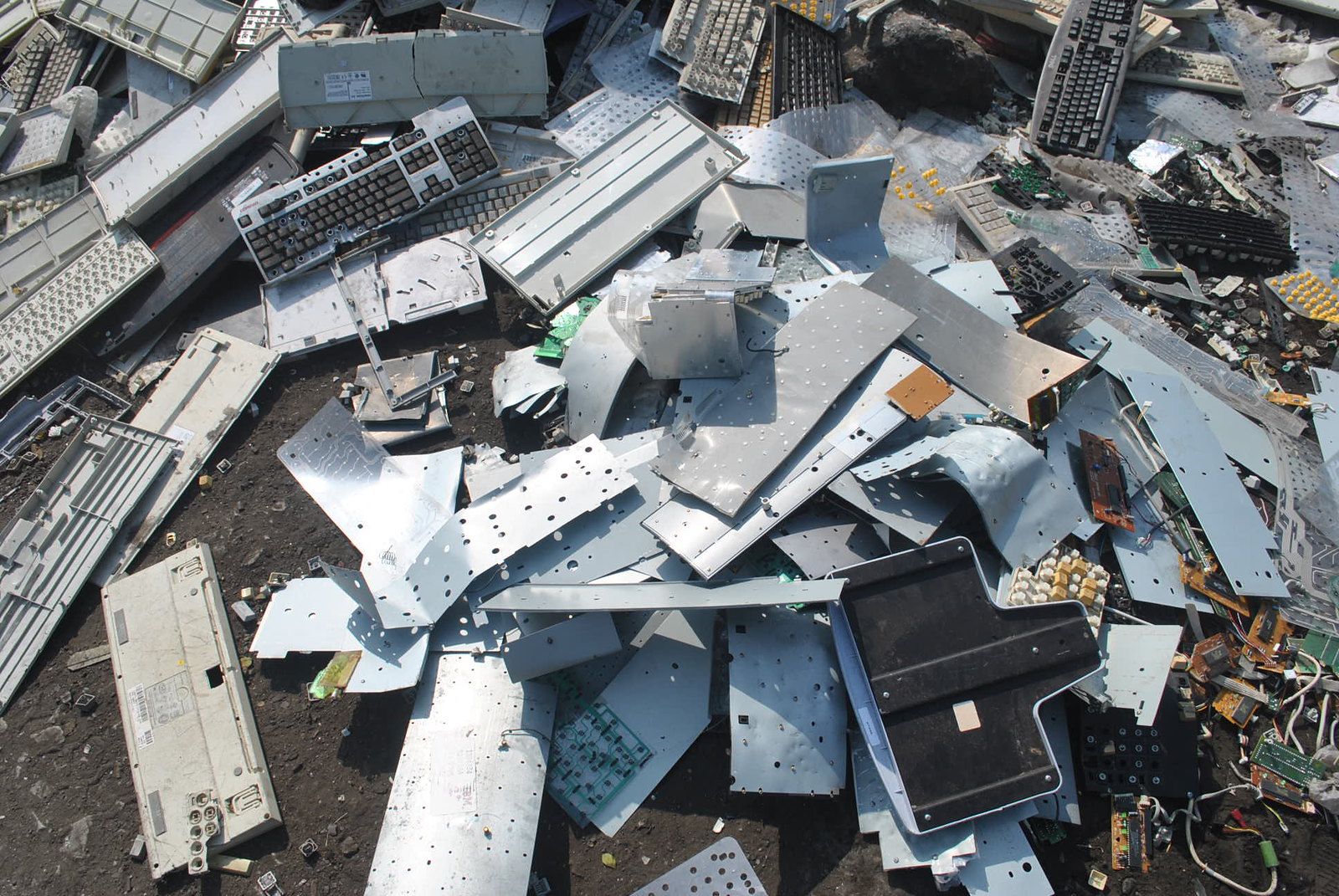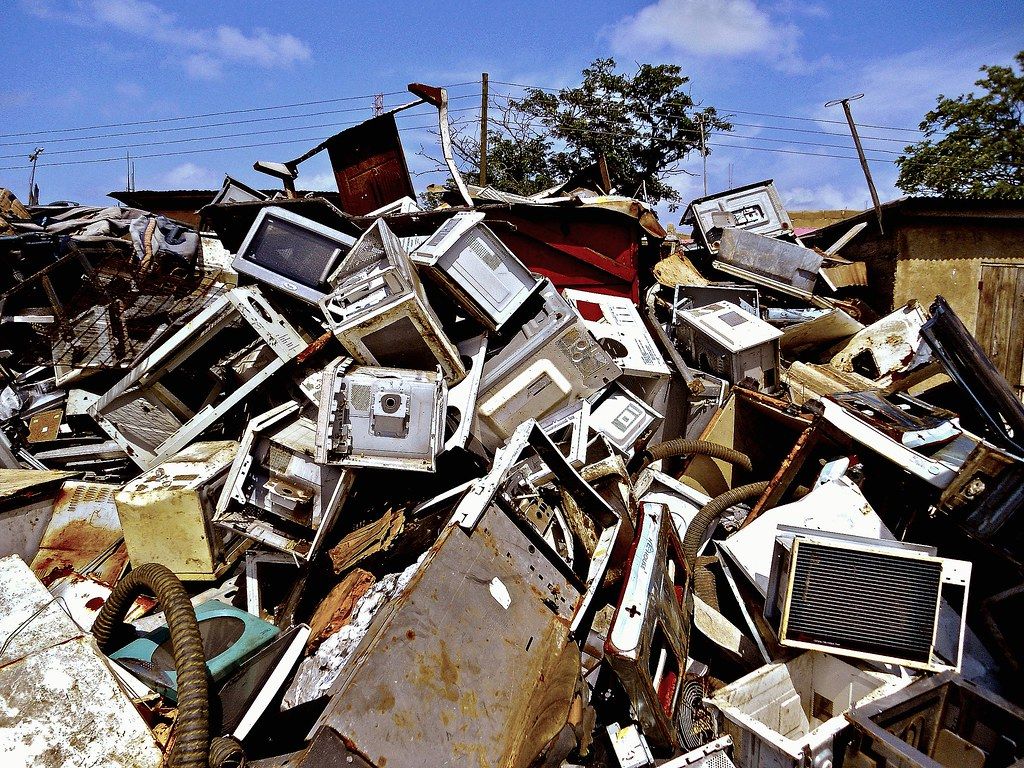By Carissa Wong, PhD Cancer Immunology
E-waste has emerged as a key environmental issue and the UK is the worst offender in Europe. How can government policy and design reduce such a growing concern?
How many phones have you owned? You probably can’t say where they are now - either you’ve lost them down a drawer somewhere or lobbed them in a bin, never to be seen again.
The way we currently treat electronic waste (e-waste) on a consumer and company level is a huge ethical, environmental and economic shortfall. Less than 20 per cent of global e-waste is formally recycled, with the rest either left untapped in landfill or informally recycled by people in developing countries.
The 1989 international Basel Convention was created to prevent the transportation of hazardous waste from developed to developing countries, yet the UK is responsible for the worst levels of illegal e-waste exportation in Europe. So how does our e-waste end up abroad? Manufacturers sell on their e-waste to waste-disposal companies who find ways to falsely export unusable products as ‘second-hand goods’, rather than recycle them locally. A recent study showed that African landfills were the most common destinations for unlawfully exported e-waste, with Thailand and the Philippines also bearing the brunt of developed countries’ rubbish.
The largest e-waste landfill in the world is called Agbogbloshie and lies in the Ghanaian capital Accra. Here, broken devices rich in valuable metals such as copper and aluminium are sold on to ‘burner boys’, who melt the plastics and rubber away to uncover the metal inside. This involves working all day with dangerously hot flames while inhaling toxic fumes. Workers often have very little or no protective wear. Heavy metals such as lead and mercury leak from e-waste into the land and water; once ingested by wildlife and people, these poisonous substances cause diseases including cancer and heart failure. Workers frequently suffer from respiratory problems, headaches, and burns, but they rely on this work to support their families.

Apart from local pollution, the inadequacy of the current e-waste system has global implications, and rethinking the system is necessary to help solve the climate crisis. For example, mining metals from rocks is associated with higher CO2 emissions than recycling them from e-waste. What’s more, ‘urban mining’ the mountains of discarded devices provides access to a richer source of metals versus traditional mining. For instance, there is 100 times more gold in a tonne of e-waste than in a tonne of ore.
A critical part of revamping the e-waste system will be getting manufacturers to rethink how they design products; designs should minimise the amount of e-waste and facilitate the reuse and recycling of old parts. Financially, it makes sense: it’s thought we threw away £50 billion worth of e-waste worldwide last year. By restructuring business models with reuse and recycling in mind, tech companies can redirect this money back into their pockets. Apple has realised this and so, in 2018, they released a robot called Daisy that can disassemble iPhones at a rate of 200 phones per hour, to recapture precious metals for recycling.
While recycling certainly helps, we need to produce less e-waste in order to tackle the problem effectively. Many phones have lifetimes of just a few years and several new versions are released within that time. Consumer demand holds huge power in regulating production levels; many of us give little thought to the long-term consequences of a purchase. We’re hooked on upgrading to the latest version of our phone, laptop or TV and it’s a culture that needs shifting. We can reduce e-wastage if both companies and consumers start seeing products as long-term investments rather than short-term versions of something better.
E-waste constitutes the fastest-growing waste stream and we need to act now for each other and our planet. In Bristol you can leave small electrical items such as kettles and phones beside your normal recycling boxes for collection and recycling - just put them in a labelled carrier bag. Certain items might require a trip to Currys or PC World.
If items are functional but unwanted, you can sell them on via ebay, Gumtree or Facebook. Alternatively, give it away for free on Streetbank or Freecycle. There are also local repair cafés taking place monthly in Fishponds, St.Pauls, Bedminster and Horfield where you can bring along broken food blenders, TVs and digital radios - check out the Facebook page. It’s never too late to dig out old phones from the depths of your drawers and when you next fancy a new phone, take a moment to ask yourself: do I really need it?
Featured image: Robin Pierro / Flickr
Are you trying to limit your e-waste? Let us know!









